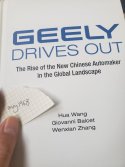The ban is not about afterschool classes on foreigh languages, painting, dancing, piano etc. and summer camps. The directive is very clear about the scope of the ban. It specifically goes after the afterschool tuitions on Math, Physics, Chemitry, etc. which are the major courses of primary and secondary educations. In China the entrance exams for higher level educations mostly just focus on these courses.whoa, relax. The question is how the tutoring ban can be effectively enforced since the wealthy and connected can always find loopholes to give their kids a leg up. The same applies to the video game ban b/c kids can use their parents' accounts or find other ways.
And yes, in today's world you would want your kids/citizens to learn a coupe different languages, get tons of exposure to other cultures. Encouraging them to learn English, which happens to be the most widely spoken language, is not going to hurt them.
This kind of afterschool tuitions were hyped as "enhanced" version of the in-school tuitions to get the participants ahead of competition in exams. It caused inequality among the kids. Not all families could afford such additional tuitions. Even for those who could, it added quite some stress financially.
These afterschool tuitions were actually competing head on with the in-school tuitions. It was causing brain drain from the public schools. Many teachers quit their public school jobs to join the private sector for better pay. Some of those who stayed were found in conflict of interests, Either they themselves had part-time jobs in such afterschool tuitions or they had monetory connections with someone else in the private sector. They were complained for not giving the expected performance as school teachers.
Last but not the least, many, if not most, of these afterschool tuitions did not really deliver their promises. Some of them were even on the border of scamming. It was reported that, at the peak of it, the sector was worth over a hundred of billion yuans in market value (Or it was by estimated revenue annually. I cannot remember exactly).
In the end, the aim of this ban is to keep the average families from being forced into the tuition arm race in which they were sure to lose.
For those who are 20% and above, they can always have private tuitors for their kids. But there isn't anything reasonable the government can do about it at the moment.
Indeed it is a challenge for the government, and the public school system, to enforce this ban. There are always some smart dudes who can find loopholes in about any law or regulation and take advantage of it. Not to mention those who believe that money can buy them everything and anything.
Time will tell whether this ban works.

